Menopause
Mind the gap: How menopause affects women disproportionately
Women of colour are more likely to reach menopause earlier and experience more intense symptoms
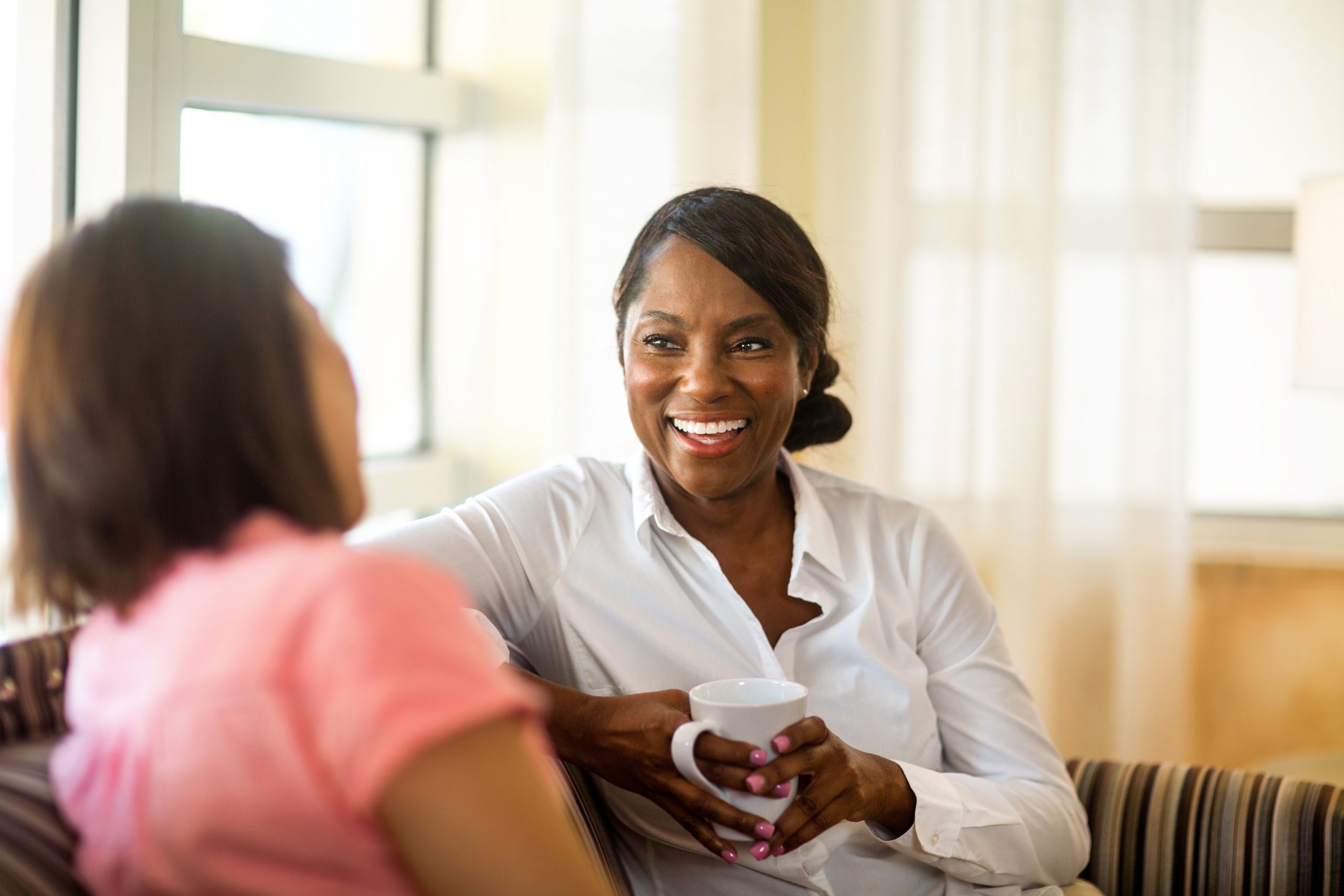
Many factors come into play when women enter menopause, making each experience unique. Helen Normoyle, co-founder of My Menopause Centre, tells FemTech World why we need a more nuanced understanding of the menopausal transition.
From the average duration of menopause-related hot flashes to gastrointestinal and vaginal issues, menopause affects women differently.
Recent studies from the Study of Women’s Health Across the Nation (SWAN) have found that women of colour tend to enter perimenopause and menopause at earlier ages than their white peers, have longer transition periods and experience more intense symptoms.
“Raising awareness of menopause across different communities is extremely important,” says Helen Normoyle, co-founder of My Menopause Centre, a website and online menopause clinic.
“We need to be conscious of barriers to diversity and inclusion because changing the mentality around what menopause is and what it is not requires a more nuanced understanding of how cultural differences can shape the way a woman experiences and describes her symptoms.”
My Menopause Centre, led by Dr Clare Spencer, a registered menopause specialist and GP, provides evidence-based and personalised menopause support to women across the UK regardless of their age, health, ethnicity, sexuality or economic background.
The website offers a free online questionnaire that helps women determine whether they are menopausal or perimenopausal and collects information to minimise the existing data gap. The more women complete it, the more they will contribute to the collective understanding of how the menopause is experienced.
“We invested in the questionnaire so that women could use it and get a free personalised assessment,” Normoyle tells me. “We use an algorithm based on all of the thinking that a doctor would use to determine whether or not a woman is in a particular stage of the menopause transition. It doesn’t matter what your friend or your mom did. Every woman’s experience is different.”
The questionnaire is meant to give women more clarity over their symptoms and the support they need and it was inspired by Helen’s personal experience with menopause.
“I was very reluctant to speak about what I was going through,” she remembers. “So, when I decided to talk about it with Claire, who was training to become a menopause specialist, I had a lot of questions.
“After we had a chat, I thought maybe we could bottle up that knowledge and share it with all women because something that happens to every woman isn’t known by every woman. So, we designed the questionnaire to help women better understand the menopausal symptoms and find solutions,” she explains.
“We take a very holistic approach. We look at lifestyle, nutrition, exercise, as well as alternative treatments to HRT, coaching and counselling, but the real driver for it is to help those who can’t afford a private appointment.”
Normoyle and Dr Clare Spencer launched My Menopause Centre in May 2021 and so far more than 15,000 people have filled out the questionnaire. The founders are to meet with MP Carolyn Harris to discuss the findings and inform the government’s current UK Menopause Task Force, to help close the gender data gap and improve the support provided to women.
Menopause is a diversity issue, says Normoyle. “We campaigned on a number of fronts to raise awareness of the impact of menopause and what needs to be done and we submitted evidence into the Department of Health.
“Our findings have shown that the health and data gap is more acute for women of colour and also HRT take-up is significantly lower,” the co-founder continues. “Nobody really understands the reasons behind these differences, but we want to be a key driver in the movement of using evidence and information to close that data gap.”
In March, Channel 4 and My Menopause Centre came together to host a special 4Talks session to discuss the importance of intersectionality when tackling the menopause within the workplace and wider advertising industry, as well as the need to raise awareness of the menopause, treatment options with black and brown women.
“We are very proud of what we’ve done so far,” says Normoyle. “We get patient feedback on a regular basis and when we see the Google reviews coming in, it’s really motivating. That’s the fuel that keeps us going.
“I really hope that with our website and all of our free resources, we can play a role in helping and empowering women to find evidence-based information and advice so that they can take control of their symptoms.”
The clinic is also offering support services to businesses including Tui, VW, Boots, DFS, Hill + Knowlton, Accenture, HSBC, British Airways and Volkswagen, both training staff in menopause awareness and helping menopausal employees.
Normoyle believes that families, societies and companies will all be a better place by having women fully at their best.
“I am fully convinced that by supporting women at this stage of life, we can make the world a better place,” she says. “Menopause shouldn’t be something younger women dread and fear. Knowledge is power and the more prepared you are, the better your experience of menopause will be. I hope we can play a part in reframing that narrative.”
For more information, visit mymenopausecentre.com.
Hormonal health
Round up: Restoring immunity in menopausal women with HRT and more
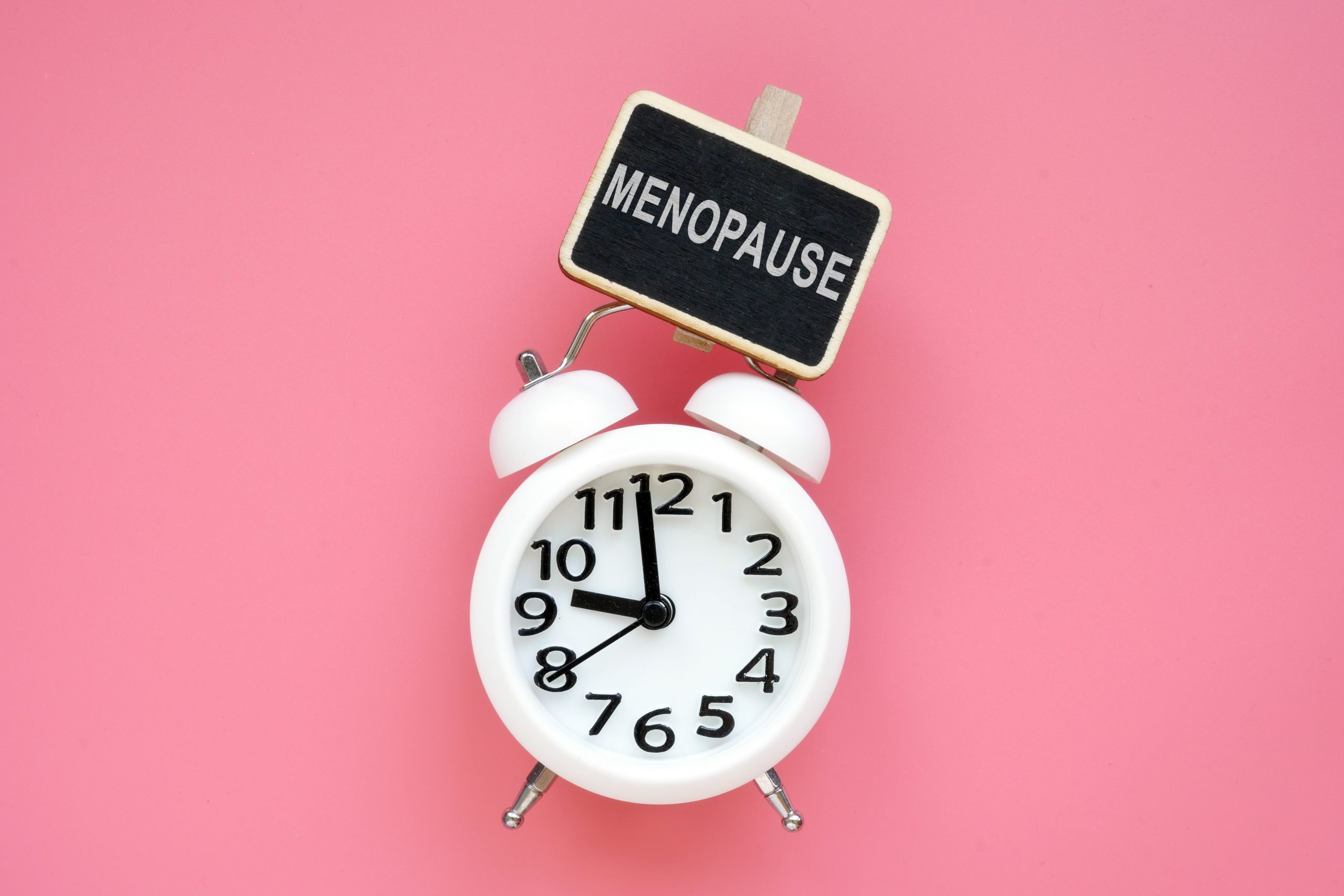
Femtech World explores the latest research developments in the world of women’s health.
Phase 2 trial of non-hormonal endometriosis treatment completed
Hope Medicine has completed a global Phase 2 study evaluating the safety and efficacy of non-hormonal endometriosis treatment – HMI-115.
HMI-115 is a monoclonal antibody that blocks the prolactin receptor, and is a potential first-in-class treatment for endometriosis.
This study included 108 female patients with surgically diagnosed endometriosis in the US, Poland and China.
According to the company, the treatment demonstrated statistically significant improvement of endometriosis associated pain.
HMI-115 was well-tolerated with no treatment-related serious adverse events.
Specifically, at the end of the study treatment, the least-square-mean dysmenorrhea pain score was reduced by 42 per cent in the 240 mg q2w group, compared to that of the baseline.
The least-square-mean non-menstrual pelvic pain score was reduced by 52 per cent.
These reductions are statistically significant. No typical peri-menopausal symptoms were reported.
There were no significant changes in menstrual patterns, bone mineral density and sex hormone levels including estradiol, LH, FSH and progesterone.
Lan Zhu, director of gynecology at Peking Union Medical College Hospital and leading investigator of the study, said: “HMI-115 relieved endometriosis pain in women without disturbing their sex hormones.
“It can potentially shift the treatment paradigm.
“We will be able to treat women without menopausal side effects or even infertility.”
Nathan Chen, CEO of Hope Medicine says that the company is now communicating with key regulatory agencies, including FDA and NMPA, to finalise the Phase 3 protocol and to initiate global Phase 3 studies.
Hormone replacement therapy may help restore immunity in menopausal women
Hormone replacement therapy (HRT) may help reverse changes in the immune system caused by menopause, potentially booting immune health, a new study has found.
The research reveals new evidence that menopause significantly alters women’s immune system, increasing their vulnerability to infections.
The study is the first detailed analysis of how ageing and sex differences influence monocytes, a key group of immune cells that act as the body’s first responders to infection.
Analysing blood samples, the team found that after menopause, women develop more inflammatory types of white blood cells called monocytes, which are less effective at clearing bacteria.
These changes were linked to lower levels of complement C3, an immune protein that helps monocytes engulf and destroy harmful microbes.
In contrast, men of the same age did not show these changes, suggesting menopause has a uniquely disruptive effect on female immunity.
To test whether hormone therapy could influence this decline, the researchers studied peri-and post-menopausal women taking HRT.
They found that these women had healthier immune profiles, with fewer inflammatory monocytes and stronger infection-fighting ability as compared to age-matched controls.
Levels of complement C3 in their blood were also higher in those taking HRT, bringing them close to the immune status of younger women.
HRT is already prescribed to manage symptoms, but this study suggests it may also help maintain immune health and reduce infection risk in later life.
The researchers caution, however, that more work is needed to confirm whether HRT reduces real-world infection rates, and to understand how different formulations or delivery methods affect the immune system.
The authors caution that while the findings are promising, the study does not mean HRT should automatically be prescribed for immune health.
More research is needed to confirm whether women taking HRT have lower infection rates in real-world settings, and to investigate how different types and route of HRT administration may affect the immune system.
New imaging technique helps us understand how eggs mature and ovaries age
The ticking of the biological clock is especially loud in the ovaries — the organs that store and release a woman’s eggs.
From age 25 to 40, a woman’s chance of conceiving each month decreases drastically.
For decades, scientists have pointed to declining egg quality as the main culprit.
But new research from UC San Francisco and Chan Zuckerberg Biohub San Francisco shows that the story is bigger than the eggs: The surrounding cells and tissues of the ovary play a crucial role in how eggs mature and how quickly fertility wanes.
Understanding these changes may hold the key not only to extending fertility, but also to improving health.
The risks of many age-related diseases rise after menopause or ovary removal, and slowing ovarian aging could help reduce these risks.
The team set out to profile what normal ageing looks like in the ovaries of mice and humans.
First, they developed a new three-dimensional imaging technique that allowed them to visualise eggs in the ovaries without having to slice the organs into thin layers, as had been done before.
In mice that were the equivalent of 30 to 40 human years, they observed a dramatic drop in both immature resting eggs that are waiting in reserve and in growing eggs that are beginning to mature for ovulation.
And just like women in their 30s, the mice did not conceive easily with in vitro fertilisation (IVF).
When the scientists extended their 3-D imaging to human ovaries, they uncovered an unexpected finding: Eggs are not evenly scattered throughout the ovary.
Instead, they cluster in “pockets” surrounded by egg-free zones. With age, the density of eggs within these pockets declines.
“This was a surprise, we assumed eggs would be distributed more evenly based on what we see in the developing ovary,” said Laird, who is a Biohub investigator and a member of the Eli and Edythe Broad Center for Regeneration Medicine at UCSF.
“These pockets suggest that even within one ovary, the environment around an egg may influence how long it lasts and how well it matures.”
Next, the researchers teamed up with Neff’s group at the Biohub to study what genes were active in ovary cells as they aged.
Ovarian tissue from humans is hard to come by, and eggs are large and incredibly fragile.
So, instead of using standard miniature devices that separate and tag cells to sequence their active genes, the group painstakingly isolated individual eggs by hand to separate them from other cells.
After studying nearly 100,000 mouse and human cells, they identified 11 major cell types found in the ovaries, including one surprise: Glia, a type of support cell typically associated with nerves and most extensively studied in the brain, were in the ovaries.
At the same time, the study revealed that sympathetic nerves, the same nerves involved in the “fight or flight” response, form dense networks in ovaries that become even more dense with age.
When the researchers ablated these nerves in mice, the animals had more eggs in reserve but fewer that matured, suggesting the nerves help decide when eggs start growing. Together, the observations on glia and sympathetic nerves suggest a new role for the nervous system in ovarian health.
Other support cells called fibroblasts also changed with age, triggering inflammation and scarring in the ovaries of women in their 50s, years earlier than such scarring appears in organs like the lungs or liver.
“This all points to a brand-new line of inquiry about how nerves, blood vessels, and other cell types communicate with eggs,” Laird said.
“It tells us that ovarian ageing is not just about the egg cells but about their whole ecosystem.”
The new roadmap of healthy ovaries over time offers a starting place to ask how ovarian aging changes in different situations.
The team is already launching studies probing whether some drugs could change the timing or speed of ovarian aging, she said.
Ultimately, they hope to uncover ways to slow or delay ovarian aging, to impact both fertility and other diseases, like cardiovascular disease, which are common in women after menopause.
“The fountain of youth may actually be the ovary,” said Eliza Gaylord PhD, a postdoctoral fellow at UCSF who is co-first author of the study.
“Delaying ovarian ageing could promote healthier aging overall.”
Hormonal birth control can influence emotions and memory
A new study shows that hormonal contraceptives appear to shape how women experience emotions in the moment and how they remember emotional events later.
Researchers compared women using hormonal contraceptives with women who were naturally cycling.
Participants viewed positive, negative and neutral images while applying different emotion regulation strategies, such as distancing, reinterpretation or immersion, and later completed a memory test.
Women on hormonal contraceptives showed stronger emotional reactions compared to naturally cycling women.
When they used strategies like distancing or reinterpretation, they remembered fewer details of negative events, though their general memory remained intact.
In other words, they could recall the overall event but not all of the specifics. That gap may actually be helpful, allowing women to move on instead of replaying unpleasant details.
Strategies like immersion boosted memory for positive images in both groups, making happy moments stick more clearly.
The findings add weight to a question many women have had but few studies have answered: How does birth control affect not just the body but the mind?
Emotion regulation and memory are tied to mental health outcomes such as depression, and this research suggests hormonal contraceptives may influence those processes in subtle but meaningful ways.
The researchers plan to expand the work by studying naturally cycling women across different menstrual phases and by comparing types of hormonal contraceptives, such as pills versus IUDs.
Menopause
New report exposes perimenopause as biggest blind spot in women’s health

Women’s wellness company NNABI has released the first nationally representative research dedicated entirely to perimenopause.
The decade-plus hormonal life stage begins as early as mid-30s and is often dismissed, misdiagnosed or ignored.
The Peri Power Report uncovers a staggering awareness gap.
Although the US women surveyed were experiencing an average of seven perimenopause-related symptoms — including exhaustion, anxiety, brain fog, and disrupted sleep — nearly 40 per cent had never even considered perimenopause as the cause.
Instead, women overwhelmingly blamed stress (53 per cent), mental health (46 per cent), and ageing (46 per cent) for what are likely due to hormonal shifts.
Only 10 per cent had received a formal doctor diagnosis.
And yet, they continue to push through, 49 per cent admitting they feel they “should” be able to push through but are struggling silently.
Marina Pen is co-founder of NNABI.
Pen said: “Perimenopause shows up when women are at their peak responsibility years, running businesses, raising kids, caring for ageing parents, holding the world together.
“This report reveals how women are doing all of that without a roadmap for how to care for themselves in perimenopause. NNABI exists to change that.”
This report signals a cultural turning point.
Women are redefining what success looks like during this chapter.
Gone is the expectation to please and push through. Instead, they are prioritising joy, boundaries, and alignment with their values.
As one respondent put it: “Success is being unapologetically myself.”
NNABI is a women-founded wellness company redefining how women navigate perimenopause.
Known for its flagship botanical supplement, Peri Essential 5™, NNABI delivers doctor-formulated, clinically backed, and third-party tested support for the most common symptoms of perimenopause — including fatigue, brain fog, mood swings, poor sleep, and bloating.
With a focus on education, community, and science, NNABI is building the trusted platform women need during this pivotal life stage.
EJ Kim, co-founder of NNABI, said: “This report is more than research.
“It’s overdue validation and a call to action: put perimenopause at the centre of women’s health and meet women with clarity, compassion, and dedicated care that’s been missing for far too long.’”
Download the full report at https://nnabilife.com/pages/get-the-peri-power-report
Insight
Starting menopause therapy early may lower Alzheimer’s risk, study finds

Starting hormone therapy within five years of menopause could lower women’s Alzheimer’s risk by up to 32 per cent, but beginning at 65 or later may raise it, research shows.
The analysis pooled findings from more than 50 studies comparing women who used hormone replacement therapy (HRT) to those who did not.
Researchers from the Pandit Bhagwat Dayal Sharma Post Graduate Institute of Medical Sciences in India presented the results at the American Neurological Association’s annual meeting in Baltimore.
Women who started HRT around the time of menopausal transition saw a 22 to 32 per cent risk reduction.
By contrast, those starting at 65 or later had a 38 per cent higher risk, particularly with treatments containing progestin – a synthetic version of progesterone.
Lead researcher Dr FNU Vaibhav said: “Starting hormone replacement therapy early may give the brain some protection, but if a woman already has Alzheimer’s or memory problems, hormone therapy won’t slow them down.
“It’s like watering a plant: it helps when the plant is growing, but if it’s already wilting, it might be too late.”
HRT replaces oestrogen lost during menopause, easing symptoms such as hot flushes, night sweats and sleep disturbance.
It has also been linked to benefits for heart health and protection against age-related bone loss.
Just under 5 per cent of US women use HRT today, down from almost 26 per cent in 1999.
Researchers suggest that therapy begun during the transition may protect the brain by improving communication between nerve cells and reducing inflammation.
But once early Alzheimer’s changes are underway, added hormones may worsen problems by stressing blood vessels or fuelling inflammation.
Vaibhav said: “The evidence isn’t strong enough to suggest hormone replacement therapy should be taken to prevent Alzheimer’s.
“However, if a woman is planning to use it for menopause symptoms, starting soon after menopause might give her brain some protection against Alzheimer’s disease later.”
He advised that treatment should usually be limited to a few years and avoided entirely in the 60s or 70s.
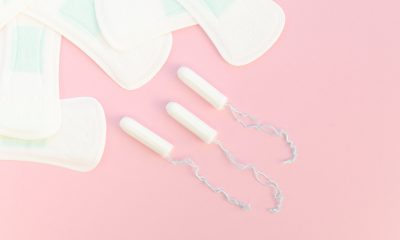
 News4 days ago
News4 days agoDozens of women report suffering painful burns after using Always sanitary towels
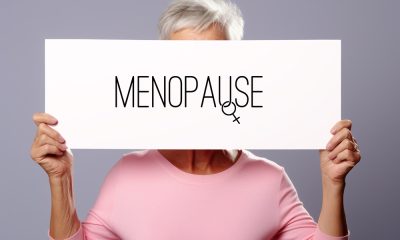
 Opinion3 weeks ago
Opinion3 weeks agoFDA plans to revise black box warning on menopause hormone therapies

 Hormonal health2 weeks ago
Hormonal health2 weeks agoAI-powered women’s health companion Nexus launches in UK
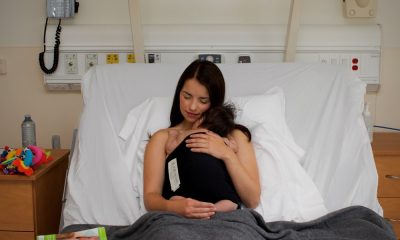
 Entrepreneur1 week ago
Entrepreneur1 week agoWomen’s health innovations recognised in TIME’s Best Inventions 2025
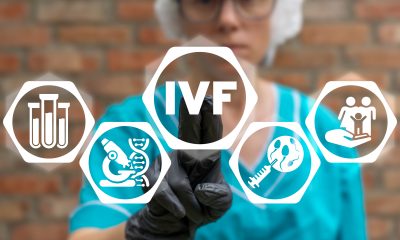
 Fertility3 weeks ago
Fertility3 weeks agoScientists turn human skin cells into eggs in IVF breakthrough

 News3 weeks ago
News3 weeks agoDaily pill could delay menopause ‘by years,’ study finds

 News3 weeks ago
News3 weeks agoAncient herb to modern must-have: Why ashwagandha is capturing UK women’s attention
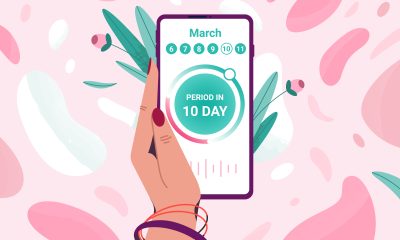
 News2 weeks ago
News2 weeks agoMenstrual cycle affects women’s reaction time, study finds
















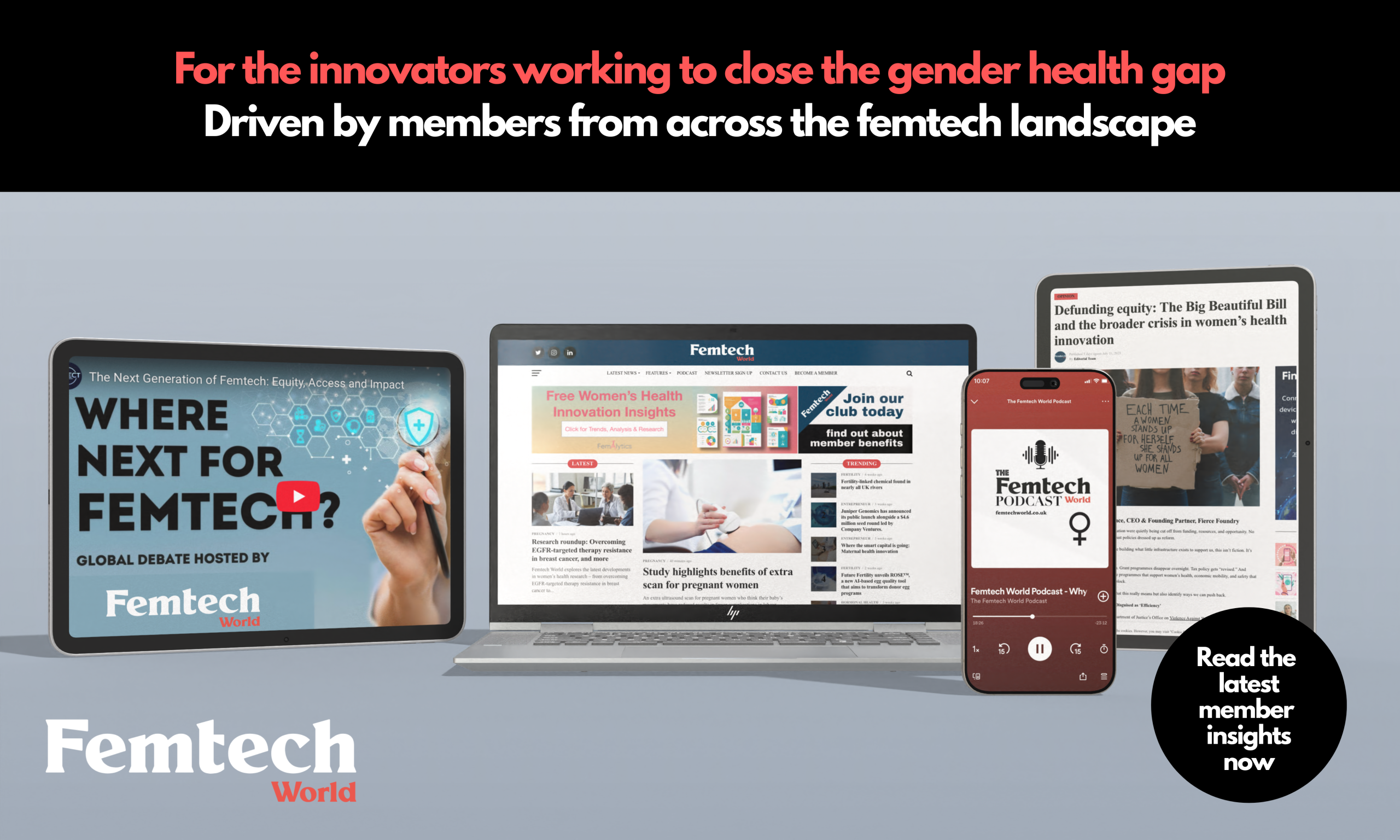











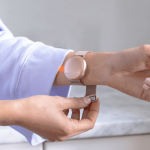
1 Comment